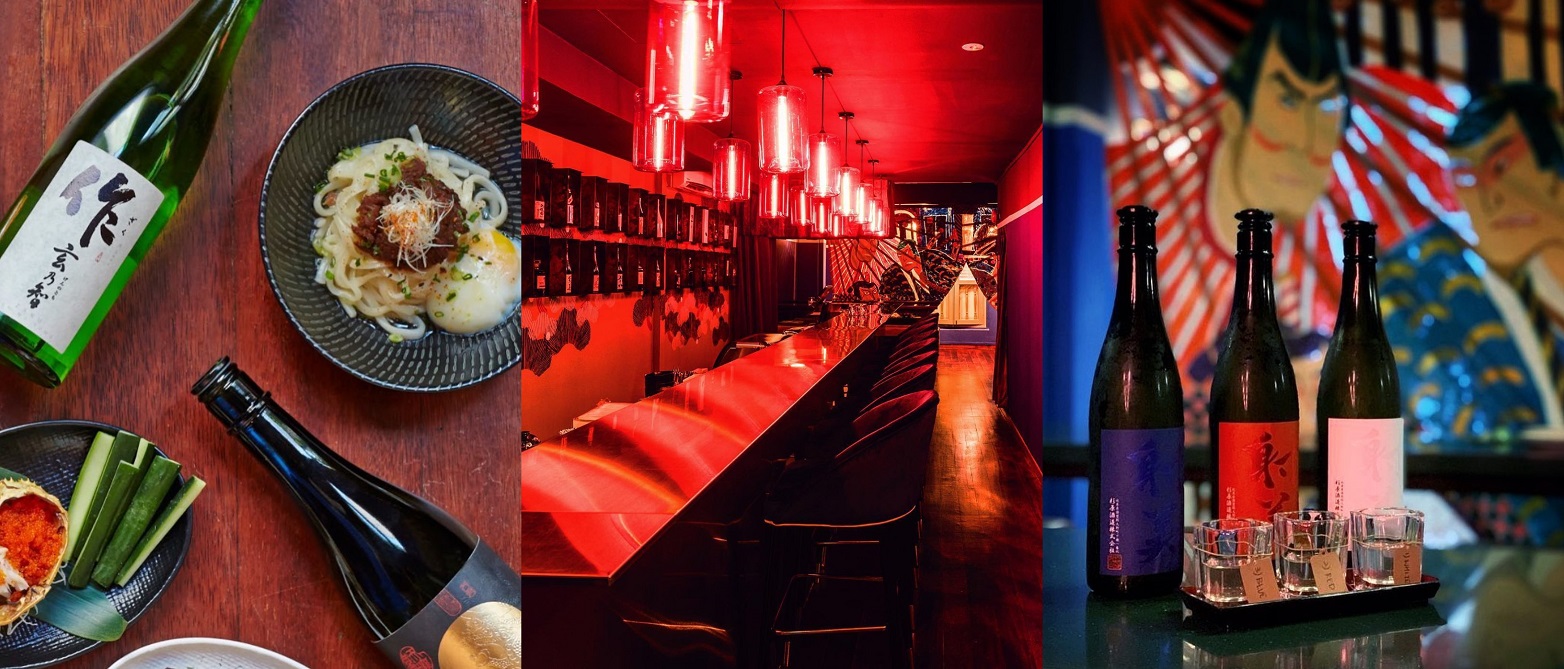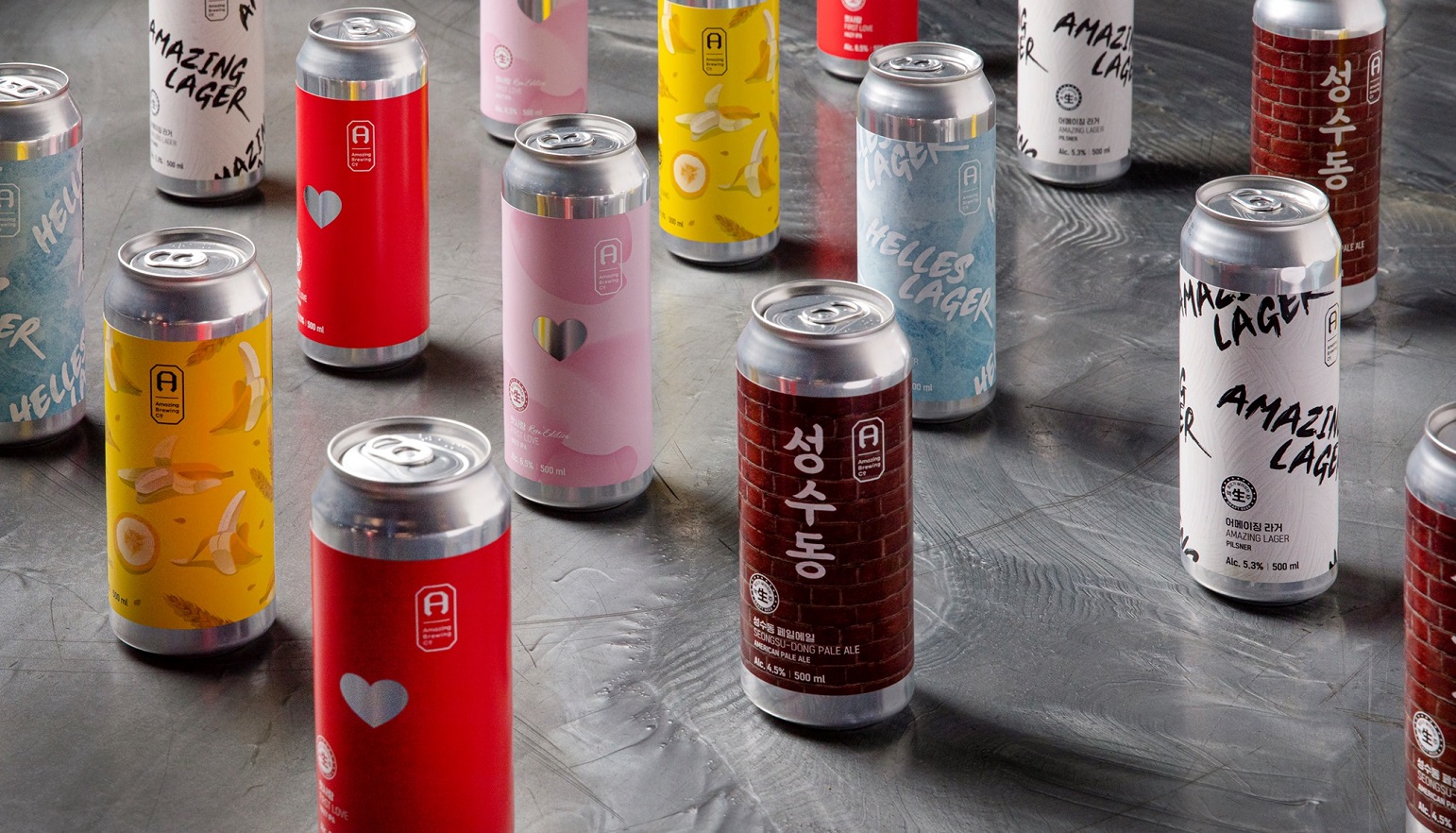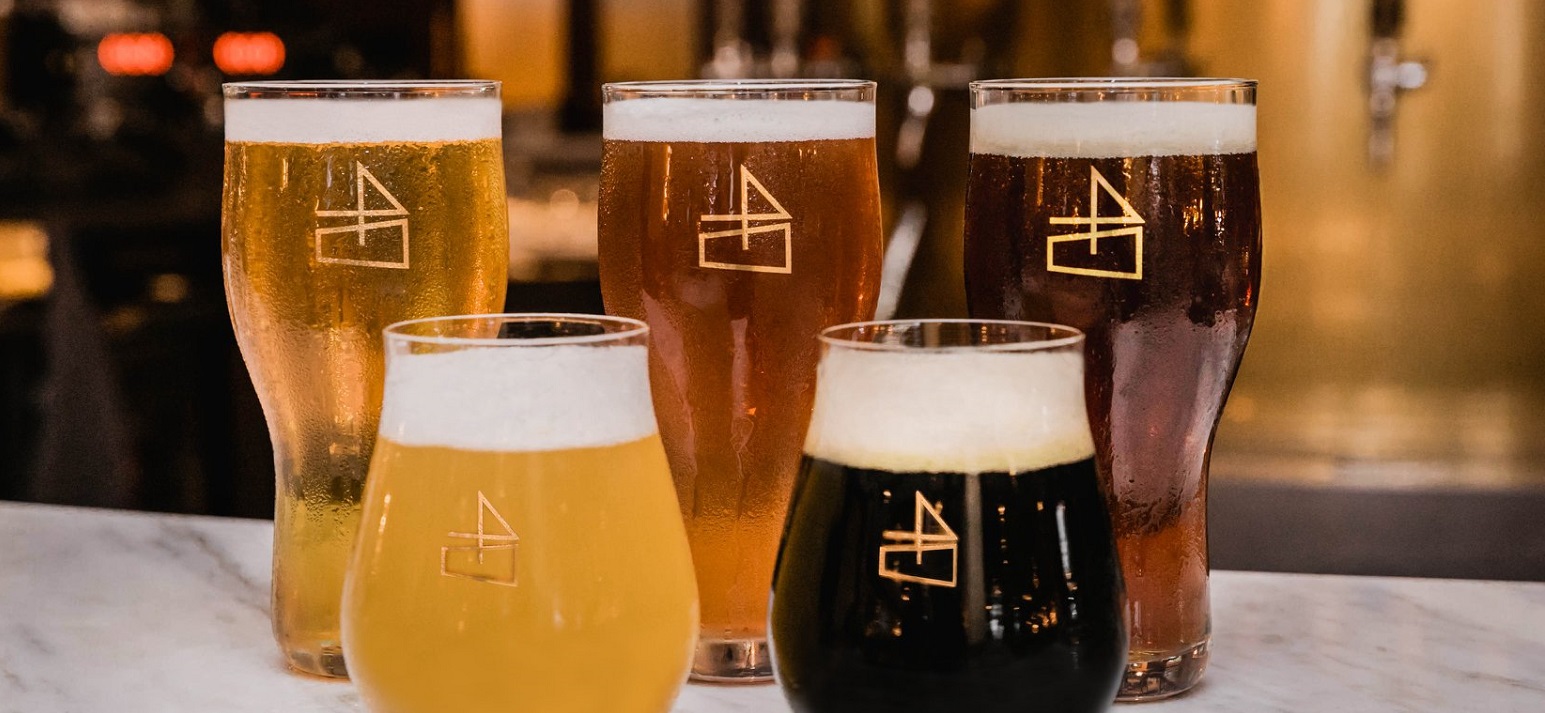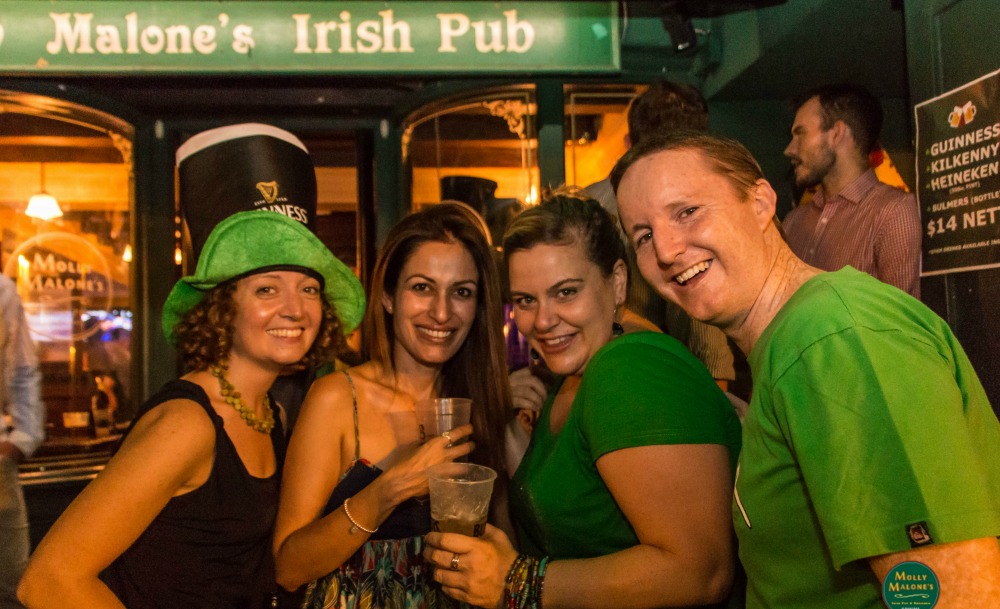We’ve all heard the familiar tale: A successful restaurant sits back on its laurels after riding out the rough opening period, thinking that it’s all smooth-sailing from here on out. Then as more new players enter the scene, these once-established brands fade slowly into oblivion. And given the pace of the F&B industry here, there isn’t even time to hold a vigil.
It is a cautionary tale on complacency—but one that will not apply to a certain pioneering craft beer brand. Homegrown microbrewery Brewerkz, which opened in 1997 as Singapore’s first microbrewery restaurant, has been laying low for the last few years, though not without action. Beneath the veneer of their daily operations, something has been brewing (pun fully intended).
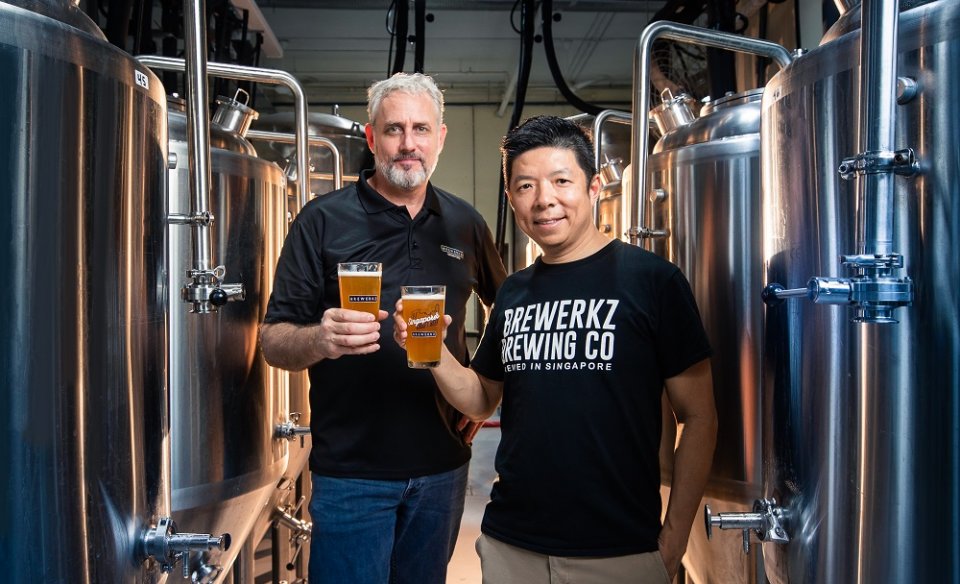
Sean McLin and Tan Wee Han
On-site at Brewerkz’s gleaming microbrewery in MacPherson, owner Tan Wee Han, 52, and head brewer Sean McLin, 50, are showing us their new toys. These include a canning line, a separator, and 10 shiny new bright tanks as part of an all-new pilot system. With these McLin has been able to experiment with different beer styles in small batches—creating the four brand new Brewerkz beers that will launch this month.
From end April, customers will be able to pick up quality brewed beers from Brewerkz at Redmart, NTUC and Cold Storage. There are two lines to choose from: the core line comprising the brand’s existing Signature Series (Golden Ale, India Pale Ale, Bohemian Pilsner, and Oatmeal Stout); and an experimental line that will rotate new, limited-edition beers.
Debuting the latter are the Iguana Lager, a light, easy-drinking lager with a sweet aftertaste; the West Coast IPA Tan describes as “super hoppy”; Short Fuse, a hoppy, unsuspecting double IPA packing 8% ABV; and Razzmitaz, a raspberry sour that is both Tan and McLin’s favourite. Only two to three months old each, the experimental beers were tested at Brewerkz’s bars first before the team made the decision to package them for retail; Tan estimates for them to remain in the retail market for about six months at a time. The cans will range from $5.80 for the core line and the Iguana Lager, to $7.70 for the experimental line—to accommodate the cost of more expensive ingredients, higher ABV, and the limited-edition labelling on the cans.
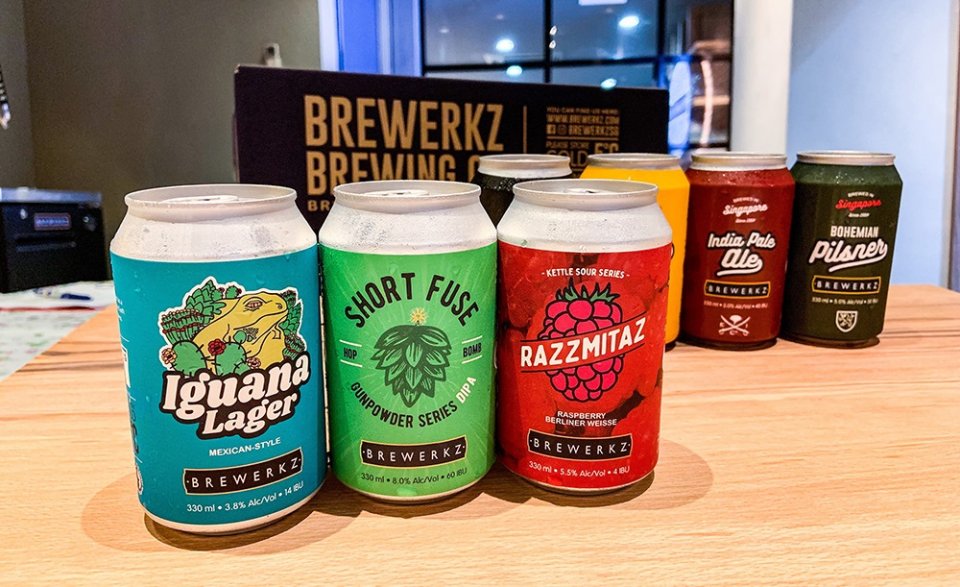
Photo credit: SG Magazine
Doing away with their on-site brewing at the restaurant, Brewerkz makes its official transition from brewpub to packaging brewery. Old-time fans will still be able to taste fresh drafts at the Brewerkz restaurants—but now they also have the option to take home a can or six, for parties and personal drinking.
Much of the urge for innovation has to do with staying relevant to a newer, thirstier crowd. Tan said he was well aware of a growing preference for more exciting craft beers in the market—in terms of both flavour and appearance.
“We certainly want to attract the millennials; we have the ability to make the beers that they like,” he said.
That they do—the company recently invested more than US$1.5 million into the microbrewery within the last year to bring in equipment.
“So we need to make this work,” laughed Tan.
Can do attitude
Perhaps the biggest development in their innovation going forward is canning their iconic drafts. The two head honchos are proudest of their state-of-the-art canning line—the first in a Singaporean microbrewery, and the second most expensive toy in their space.
McLin, who has been brewing since 1989 in his native US, says the move towards canning has been a growing trend amongst craft brewers overseas for a while now. He lists three simple advantages to opting for cans over bottles: First, that cans are more environmentally friendly; their lighter weight takes less fuel to transport, hence reducing the microbrewery’s carbon footprint. Secondly, they chill faster—a godsend for anyone throwing together a last-minute party. And most importantly, the beers keep better. Because the cans eliminate all light from entering and reacting with the beer, as opposed to glass bottles, the liquid inside is less at risk of turning “skunk”, said McLin.
“The technology has changed, not only from the building equipment but to the actual can—the cans actually have a liner on the inside, so the product never comes into contact with the metal,” he added. “In the past people would say ‘oh, cans have that kind of metallic tin type taste.’ Well, that’s not the case anymore.”
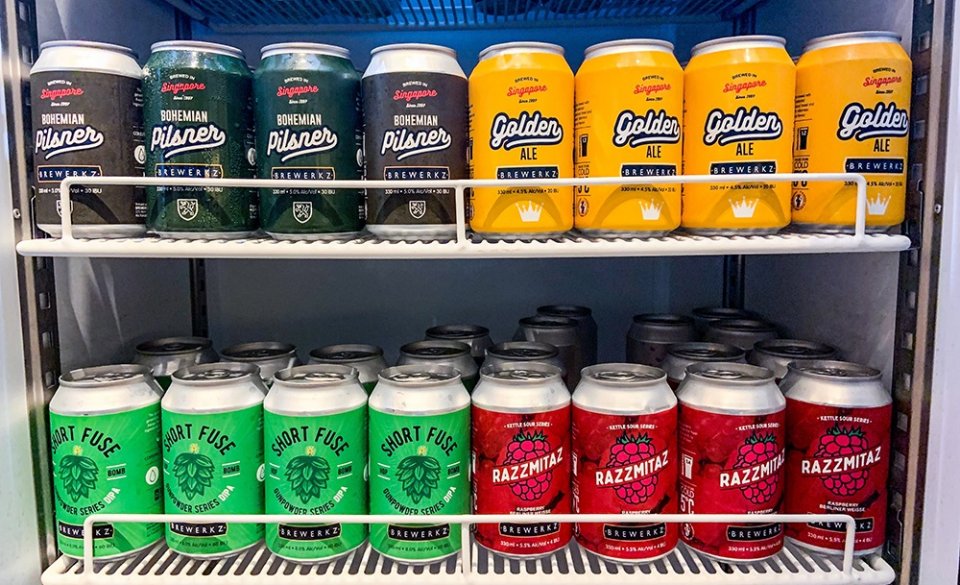
Now that’s what we call a well-stocked fridge. Photo credit: SG Magazine
Since taking over Brewerkz in 2014, Tan, who was formerly in the wine distribution business, has been ideating furiously on how to keep the time-worn brand relevant. But every step is calculated; the company spent a year and a half weighing the pros and cons of canning and bottling.
And as big of a brand amongst locals as they are, they’ve still managed to retain a sense of homegrown, Do-It-Yourself relatability. Tan shared that in order to trial the effectiveness of packaging, the team tested leaving the cans in the car for five days. The result?
“I would say if you’ve never tasted our beer before you’d still love all the beers,” answered Tan confidently, adding that his role as owner naturally holds him to stricter standards. It’s a tedious process, but necessary to ensure that the product remains insusceptible to any possible “abuse” from future buyers.
“Craft beer should be treated like wine,” insisted Tan, who asserts that regard for the industry is still lacking here. “We’re one of the top cities in the world, but why are we late in this segment? I’ve always felt it’s because the infrastructure for the industry is not there—there are not too many people investing in making good beers; in good production facilities.”
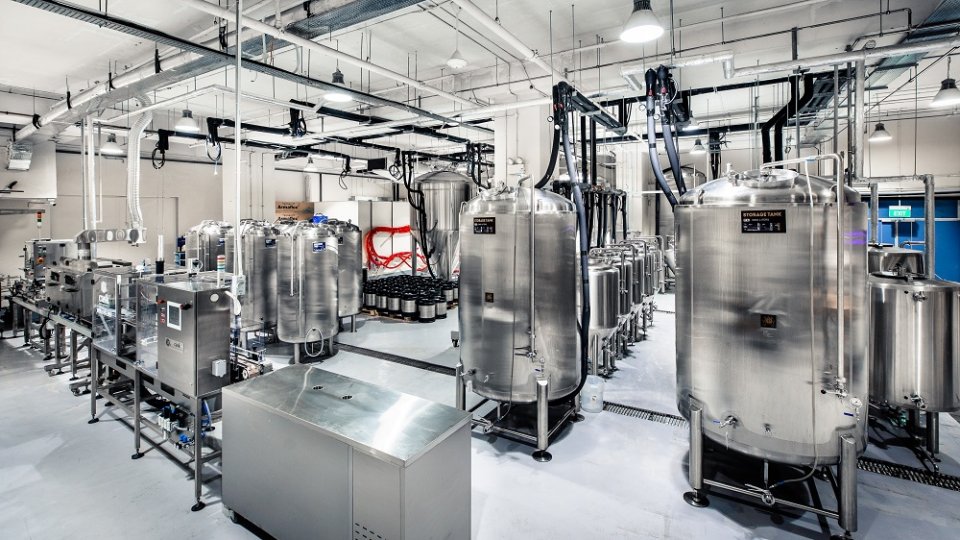
Brewerkz Brewing Co.
Recalling a trip to the US where he couldn’t find a single general beer at “any good-class restaurant”, Tan shared his dream of a similar regard for good beers at Singapore restaurants one day. It is one shared by his tenacious head brewer. “The question I would ask restauranteurs is,” chimed McLin. “If you’re out there making the food that you make, these culinary delights, why would you fall short and serve (a beer) that’s bland and very generic?”
“It’s about appreciation,” finished Tan. “I’ve always felt we will get there; and essentially that is what I’m looking at, beyond the craft beer market—providing better beer.”
A second coming
Canning and good intentions aside, Brewerkz is on the brink of a renaissance. Tan shared that the brand is in talks to have their new cans stocked at Raffles Hotel when it reopens, among other big retail opportunities. There are also plans to fully utilise their newly jazzed up space, and offer contract brewing to aspiring brewers. With so many things in the pipeline, it can be easy to lose direction.
But the team have their feet planted firmly on the ground. Their main priority right now lies with their prized new cans and the experimental range. With McLin leading the potion-making, Tan hopes to introduce more uniquely Singaporean brews in the future, with local fruit- and spice-forward flavours.
To quote an over-quoted Winston Churchill, “Success is not final; failure is not fatal: It is the courage to continue that counts.” It’s taken both courage and humility for the pioneering microbrewery restaurant to recognise a need to stay ahead, but this old dog has certainly proven its ability to turn new tricks.
Stay up-to-date with Brewerkz and their new line here.


